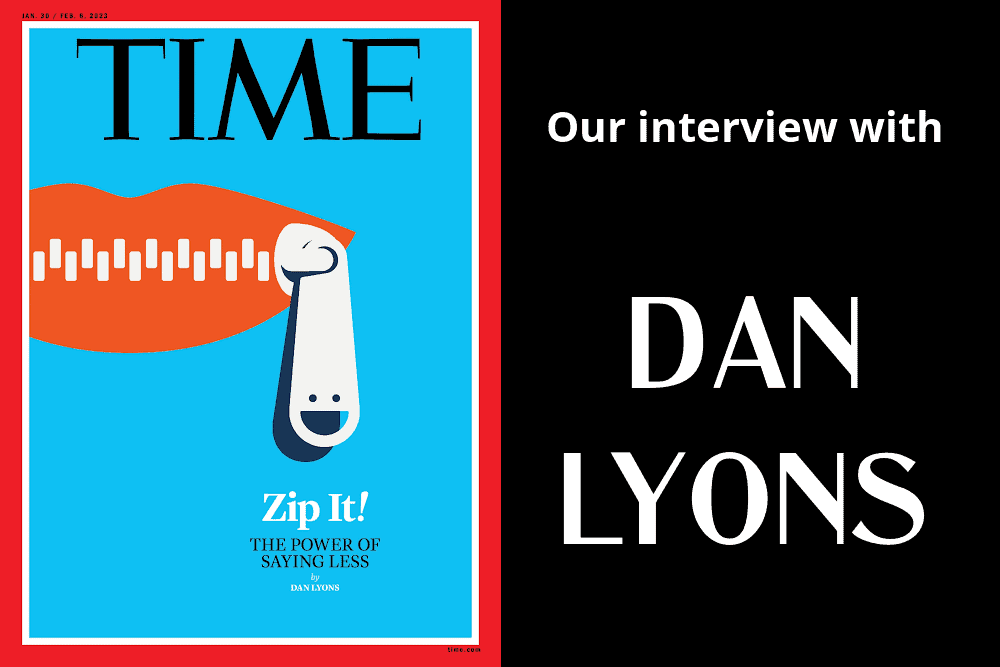On a recent episode of Narativ’s Leadership Story Talks podcast, hosts Jerome Deroy and Julienne Ryan had the opportunity to speak to Dan Lyons, New York Times bestselling author, screenwriter, and journalist, about the power of talking less and listening more. Dan recently published STFU: The Power of Keeping Your Mouth Shut in an Endlessly Noisy World, a book he decided to write after realizing that his work to become a better listener was much bigger than himself.
During the episode, Dan and the hosts discussed the realization that led to him recognizing he needed to learn to talk less and inspiring him to write his latest book. They also talked about some of the reasons why people might over-talk, as well as the effects of social media on our compulsion to talk more. Later in the discussion, they talked about the practice of forest bathing and how it can help bring people into a calmer listening space. Finally, they ended by naming some prominent leaders who lead by listening, and how a shift toward this kind of leadership would benefit every industry and organization.
Dan’s Story: Learning to STFU
According to Dan, he has always been a big talker, which, for the first part of his career, served him well. He had plenty of speaking gigs to keep him talking, and his ability to say things people don’t want to hear was often helpful for his journalism. But, eventually, karma caught up with him.
At some point, Dan had an epiphany. He realized many of the bad things that had happened in his life were the result of talking too much and saying the wrong thing. Such a realization would be enough to send anyone on a long journey of self-reflection, but for Dan it also came with a new curiosity about what causes some people to talk too much and how it can be fixed—a curiosity that eventually birthed his latest book.
“In the course of researching this book, I found out that I qualify as what’s called a ‘talkoholic,’” Dan admitted.
His research also revealed different psychological and cultural causes for over-talking as well as insight into the relationships cultures around the world have with silence, exploring why some are less comfortable being quiet than others. The process, he explained, caused him to become a convert to the world of listening, which he feels has resulted in a lot of positive change for his life.
What causes people like Dan and many others to feel the need to talk so much? More importantly what can be done to help them to make the shift to listening?
Why Do We Talk So Much?
During the conversation on the show, Dan told the hosts about some of the reasons people feel the need to fill up silence by talking. Based on his studies while writing his book, there are a few main reasons:
Nerves
Everyone is prone to getting anxious and rambling sometimes, but it is a lot more common for people who are in an unfamiliar setting with unfamiliar people. This is especially prevalent for people with social anxiety for whom silence can be particularly uncomfortable.
ADHD
A lot of research has found that many people who struggle with compulsive speech suffer from Attention Deficit Hyperactivity Disorder, which often limits impulse control where speech is concerned. These people are often aware of their over-talking and want to control it better. Thankfully treatment can help a lot with easing the compulsion.
Neuron Imbalance
Other research has found that frequent over-talking can be the result of an imbalance in the prefrontal cortex. An imbalance favoring the right brain leads to over-talking, and a left imbalance results in under-talking.
Social Media
This one involves quite a few more factors than the previous neurochemical factors, but Dan’s research also led him to discover that social media today exists to keep us talking as much as possible. The pressure to say everything on our minds all the time to gain followers also means we’re a lot more likely to say things we regret.
Forest Bathing: A Natural Lesson in Listening
Dan learned a lot of things on his own journey to listening about the value of intentional pauses. While this understanding came from a lot of places, one practice his book mentions at length is something called forest bathing.
The practice of forest bathing originated in Japan to address the stress rates of city dwellers. Japanese work culture is such that people were routinely dying of stress-related health conditions, so the government decided to try something simple: encouraging people to walk in the forest.
With time, doctors studying the efficacy of forest bathing found that people who spend time in the forest sleep better and have less anxiety. It is uncertain as to whether this is because of airborne medicinal qualities inherent to trees, or simply because it forces people to slow down. Regardless of the reasons, Dan felt drawn to try it out.
He discovered that spending time quietly sitting in the forest forced his mind to settle down. The longer he sat with the silence, the more he realized it wasn’t silent at all and there was a world of things to listen to. He compared the feeling to a child’s simple curiosity as they explore the backyard.
“I think we live in an age of agitation and a lot of us feel anxious,” he said, indicating that our high-pressure lifestyles and need for constant stimulation often rob us of the creativity and learning that come from occasionally just sitting in silence.
While listening is a skill with many facets, this ability to pause makes up a large part of it.
Leadership through Listening
Near the end of the episode, Dan and the hosts talked about how the ability to be quiet and listen makes for better leadership both in politics and in the business world.
Media is full of charismatic leaders who do a lot of talking, but the leaders who actually persist in making successful progress are those who listen first and then build on the knowledge of what people actually want.
Leadership in business—or elsewhere—requires a degree of humility and willingness to admit and fix mistakes rather than trying to seem infallible. Business is there to serve the customer, and being quiet to listen to what people want will reflect much better on you as a leader than any amount of talking ever will.
In Dan’s own words, “Half your time should be spent listening,”
If you would like to learn more about Dan and his work, you can visit him here, or buy his new book, STFU: The Power of Keeping Your Mouth Shut in an Endlessly Noisy World. If you would like to learn more about how Narativ can help you become a better leader through listening, we are excited to announce an upcoming 3-part “Leading with Story” workshop series at the end of April. Learn more here.




